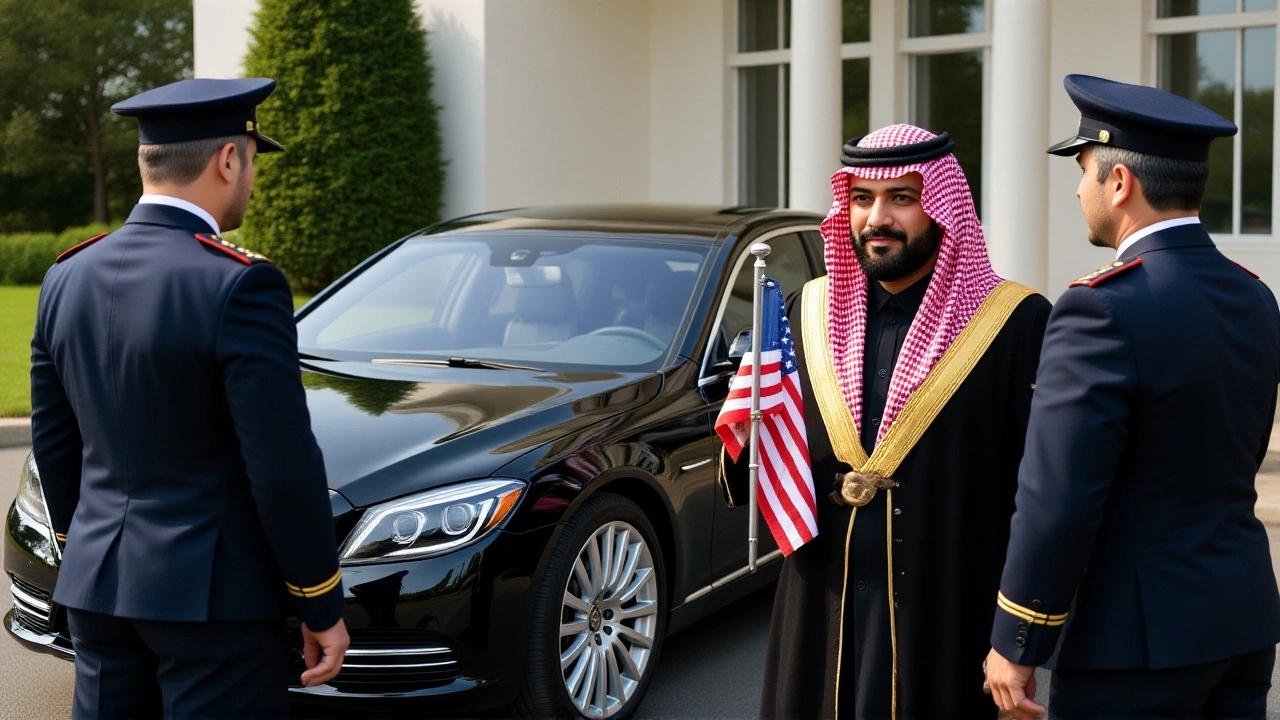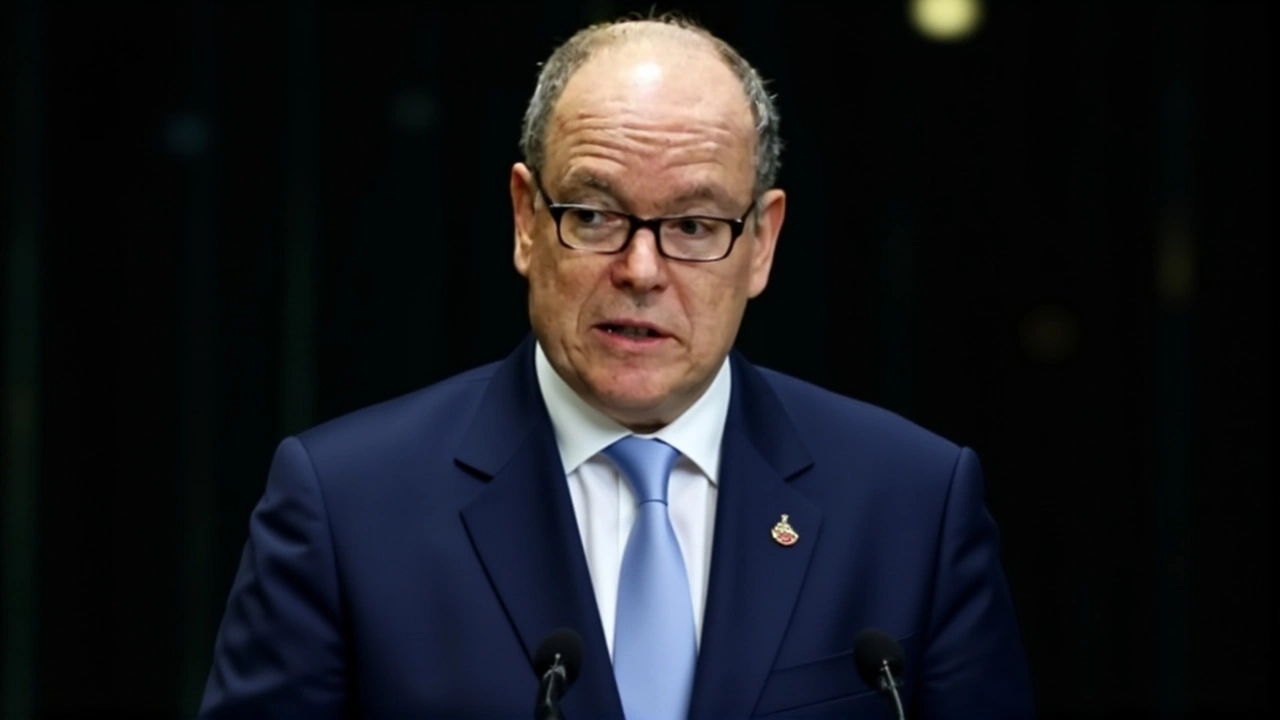On November 19, 2005, Prince Albert II was formally installed as ruler of Monaco during the principality’s National Day celebrations — a day steeped in tradition, emotion, and quiet defiance of change. Though he had legally inherited the throne on July 12, 2005, following the April 6 death of his father, Prince Rainier III, it was on this crisp autumn morning that the world witnessed the full weight of his ascension — not as a prince by birthright, but as a son honoring a legacy.
A Throne Filled With Grief and Grace
Prince Rainier III had ruled for 56 years, turning Monaco from a sleepy tax haven into a glittering jewel of European royalty. His marriage to American film star Grace Kelly had captured global imaginations, and their only son, Albert, grew up in the shadow of that myth. When Rainier died at 81, the principality mourned. Albert, then 47, faced not just the burden of leadership, but the scrutiny of a world that had watched his private life unfold — including his public acknowledgment of an out-of-wedlock son, Jérôme, just days before his formal accession.
Yet, in choosing to delay his ceremonial investiture until November 18, 2005 — the day before National Day — Albert signaled something deeper: this wasn’t just about power. It was about memory.
The Ceremony That Tied Past to Present
At the Prince's Palace in Monte Carlo, dignitaries from across Europe gathered: Crown Princess Victoria of Sweden in the Baden Fringe Tiara, Hereditary Grand Duke Guillaume of Luxembourg in the Order of the Gold Lion, and Britain’s envoy among them. There, Albert received the Homage of the High Corps of the State, the ancient ritual where officials swear loyalty to the sovereign. He was presented with the Grand Master Collars of the Order of Saint Charles and the Order of Grimaldi — symbols of authority older than the modern state itself.
That evening, the palace hosted Rossini’s Le Voyage à Reims at the Opera Garnier, a lavish opera gala attended by royal guests and Monegasque elites. The next morning, November 19, the entire family stood on the palace balcony as a military parade rolled past, cannons booming over the Mediterranean. A Te Deum Mass at Monaco Cathedral followed, its hymns echoing the same prayers once sung for Rainier.
Why November 19? A Father’s Shadow, Not a Son’s Spotlight
Here’s the twist: Albert could have changed the date. Saint Albert’s Day falls on November 15. He chose not to. Instead, he kept November 19 — the feast day of Saint Rainier, the 11th-century nobleman after whom his father was named. It was a silent, powerful act of continuity. In a world where monarchies often reinvent themselves to stay relevant, Albert chose reverence.
"He didn’t need to make it about him," said historian Dr. Élodie Moreau. "He made it about the principality’s soul. That’s why the people stayed loyal. It wasn’t a coronation. It was a consecration."

The New Royal Family: Twins, Tradition, and Tension
Albert’s marriage to South African swimmer Charlene Wittstock in 2011 brought fresh energy — and new expectations. Their twins, Prince Jacques Honoré Rainier and Princess Gabriella Thérèse Marie, born December 10, 2014, now stand as the future. Jacques, though born second, is heir apparent under Monaco’s revised succession laws, which now prioritize birth order over gender — a change Albert quietly pushed for after years of international pressure.
Each National Day, the twins appear in miniature uniforms — Jacques in a tiny naval officer’s coat, Gabriella in a lace-trimmed gown. Their cousins — Charlotte, Pierre, Andrea, and others — flank them, a living tapestry of the Grimaldi lineage. The family’s public appearances, once rare, are now carefully choreographed spectacles of stability.
Monaco’s Unique Political Balance
Beneath the glitter, Monaco’s governance is a delicate dance. The prince holds executive power, but legislation requires approval from the 18-member National Council, elected by universal suffrage. The minister of state — always a French citizen appointed by the prince — runs day-to-day affairs, a legacy of Monaco’s 1918 treaty with France. It’s a system that blends absolutism with democracy, tradition with modernity.
Monaco joined the United Nations in 1993 and adopted the euro in 2002 — though it remains outside the European Union. Its tax regime, banking secrecy, and luxury economy still draw global wealth, even as pressure mounts for transparency. Albert has quietly modernized Monaco’s image: he’s a vocal advocate for ocean conservation, founded the Prince Albert II of Monaco Foundation in 2006, and pushed for renewable energy initiatives. His leadership isn’t just ceremonial — it’s environmental, economic, and deeply personal.

What’s Next for the Principality?
With Jacques now ten years old and Gabriella soon to follow, the next generation is already being groomed. The National Day celebrations, now a global media event, are more than pageantry — they’re a reaffirmation of Monaco’s identity. As climate change threatens its coastline and geopolitical shifts challenge its neutrality, Albert’s quiet leadership may be its greatest asset.
"He didn’t inherit a kingdom," said longtime Monaco resident and journalist Pierre Lefèvre. "He inherited a promise — to protect it, not to change it. And so far, he’s kept it."
Frequently Asked Questions
Why did Prince Albert II keep November 19 as National Day instead of moving it to his own saint’s day?
Prince Albert II chose to retain November 19 as National Day because it coincides with the feast day of Saint Rainier, the namesake of his late father, Prince Rainier III. Though Saint Albert’s Day falls on November 15, Albert deliberately preserved the date as a tribute to his father’s 56-year reign and to honor the tradition that had become inseparable from Monaco’s identity. This decision reinforced continuity over personal symbolism.
How is Monaco governed differently from other European monarchies?
Unlike constitutional monarchies like the UK or Sweden, Monaco is an absolute monarchy where the prince holds full executive authority. However, it has a unique hybrid system: the 18-member National Council is elected by citizens and must approve laws, while the minister of state — always a French citizen appointed by the prince — manages daily governance. This balance of autocratic power and democratic input is rare in modern Europe.
Why is Prince Jacques the heir despite being born second?
Monaco changed its succession laws in 2002 to allow for birth-order succession regardless of gender. However, because the twins were born in 2014 — after the law was enacted — and Jacques was born first, he became heir apparent. If Gabriella had been born first, she would have been heir. The law was amended to prevent future disputes, but in this case, birth order naturally placed Jacques as crown prince.
What role does Prince Albert II play in global environmental efforts?
Prince Albert II founded the Prince Albert II of Monaco Foundation in 2006, which has donated over €200 million to climate, biodiversity, and ocean conservation projects worldwide. He’s a frequent speaker at UN climate summits and has pushed Monaco to become carbon-neutral by 2050. His personal advocacy has elevated Monaco from a luxury enclave to a respected voice in environmental diplomacy.
Why does Monaco use the euro but isn’t in the European Union?
Monaco adopted the euro in 2002 through a formal agreement with the EU, replacing the French franc, thanks to its long-standing monetary ties with France. However, as a sovereign city-state with no formal treaty of accession, it remains outside the EU. It participates in some EU programs (like Schengen) but doesn’t vote in EU institutions — a status shared only with a few microstates like Andorra and San Marino.
How did Prince Albert II’s personal life affect his public image?
His public acknowledgment of his son Jérôme in 2005 sparked controversy, especially given Monaco’s traditional values. But instead of retreating, Albert gradually rebuilt trust through consistent public service, his marriage to Charlene Wittstock, and his focus on family and conservation. The birth of his twins in 2014 helped reframe his narrative — from a prince burdened by scandal to a devoted father and steward of tradition.
